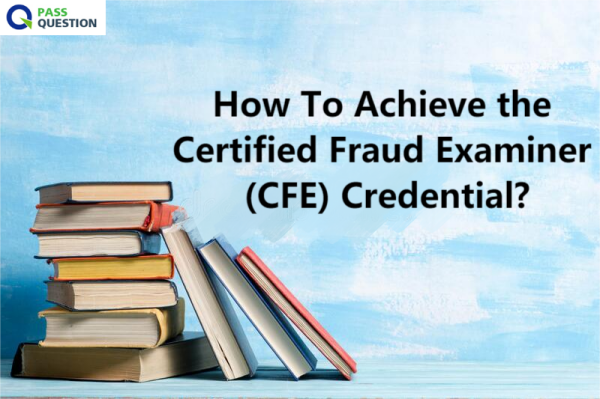How To Achieve the Certified Fraud Examiner (CFE) Credential?
The Certified Fraud Examiner (CFE) is a credential awarded by the Association of Certified Fraud Examiners (ACFE). If you want to achieve the Certified Fraud Examiner (CFE) credential, you need to pass the CFE exam to be qualified. The CFE exam includes four sections: financial transactions and fraud schemes, law, investigation, and fraud prevention and deterrence. To help you become a Certified Fraud Examiner, PassQuestion provides you with the latest CFE exam questions and answers for you to practice so that you can pass your CFE exam successfully on your first attempt. Make sure you spend enough time studying our CFE exam questions in order to appear your final exam confidently.

What is Certified Fraud Examiner (CFE)?
To earn your Certified Fraud Examiner (CFE) credential, you must pass the CFE Exam. The CFE Exam is a significant undertaking. Most likely, you will make a hefty time commitment as you prepare for and take the exam. A Certified Fraud Examiner (CFE) is a professional certification available to fraud examiners.
CFE exam will test your knowledge in the four major areas of fraud examination — Financial Transactions and Fraud Schemes, Law, Investigation, and Fraud Prevention and Deterrence. These four areas correspond to the four sections of the Fraud Examiners Manual, which is the source of knowledge for all subject matter that appears on the CFE Exam.
In order to pass, you must score at least 75% correct on each section of the CFE Exam. If you are unable to pass a section of the exam, you may retake that section. CFE Exam retake fees are $100 per failed section. The CFE Exam is administered year-round. You can take the exam online with a remote proctor, or in person at a Prometric test center site near you. The CFE Exam fee is $450.
What Content Are Included In CFE Exam?
The CFE Exam covers four areas:

1. Financial Transactions and Fraud Schemes
This section tests your comprehension of the types of fraudulent financial transactions incurred in accounting records. In this section of the exam, you will be required to demonstrate knowledge of the following concepts:
- Basic accounting and auditing theory
- Fraud schemes
- Internal controls to deter fraud
- Other auditing and accounting matters
2. Law
This section focuses on the statutes and common law principles involved in prosecuting fraudsters. It also ensures your familiarity with the many legal ramifications of conducting fraud examinations, including:
- Criminal and civil law
- Rules of evidence
- Rights of the accused and accuser
- Expert witness matters
3. Investigation
This section tests your understanding of the basic tools and techniques necessary to gather information and evidence when conducting a fraud examination and identifying perpetrators. It includes questions about:
- Interviewing
- Taking statements
- Obtaining information from public records
- Tracing illicit transactions
- Evaluating deception
- Report writing
4. Fraud Prevention and Deterrence
This section examines your understanding of why people commit fraud and the ways to prevent it. Topics covered in this section include:
- Crime causation
- White-collar crime
- Occupational fraud
- Fraud prevention
- Fraud risk assessment
- The ACFE Code of Professional Ethics
- TOP 50 Exam Questions
-
Exam
All copyrights reserved 2025 PassQuestion NETWORK CO.,LIMITED. All Rights Reserved.

